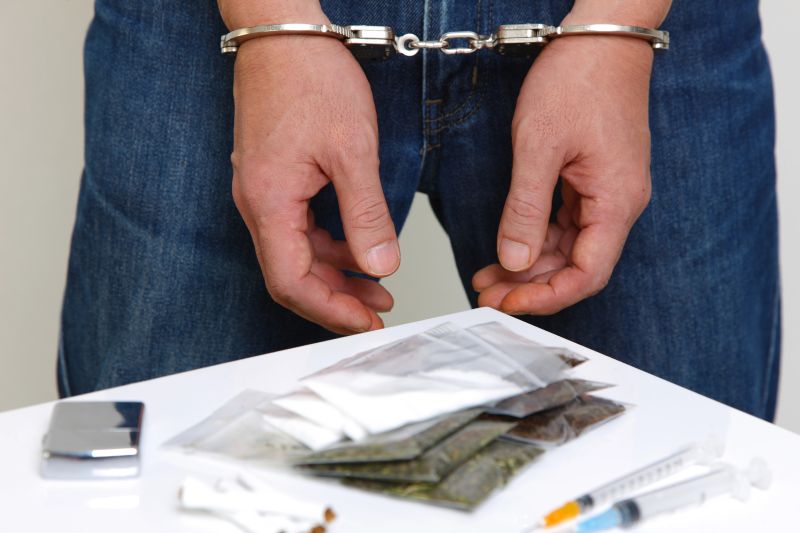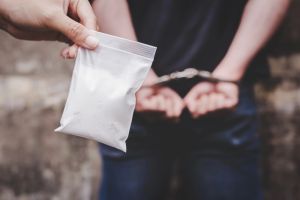Drug-related offenses carry serious consequences in Virginia, but not all charges are the same. Some involve minor possession, while others lead to trafficking accusations that can result in decades behind bars. Understanding the difference between these charges and when federal authorities get involved can assist in making a solid defense.
Drug distribution laws in Virginia impose harsh penalties, especially for those accused of large-scale operations. In this article, learn about how state laws define trafficking, how federal charges come into play, and what penalties a conviction can bring. See how legal representation is critical in fighting these charges.
What Does Virginia Consider Drug Trafficking?
In Virginia, drug trafficking includes manufacturing, distributing, or even possessing large amounts with intent to distribute. The difference it has from simple possession comes down to evidence like drug quantity, packaging materials, or cash. Even if no sale happens, having enough of a substance can lead to serious charges.
Drug Schedules In Virginia
Some substances are more dangerous than others, leading to stricter consequences. Virginia classifies drugs into schedules based on their risk and medical use, which include:
- Schedule I: These drugs, like heroin and LSD, have no accepted medical benefits and a high potential for abuse.
- Schedule II: These are substances such as cocaine and methamphetamine, which have limited medical uses but are still highly addictive.
- Schedule III: Drugs like anabolic steroids and ketamine have moderate potential for abuse and accepted medical applications.
- Schedule IV: Medications such as Xanax and Valium have a lower risk of abuse but can still lead to dependence.
- Schedule V: These include drugs with the lowest abuse potential, like cough syrups containing small amounts of codeine.
- Schedule VI: Includes inhalants and certain prescription drugs that require a prescription but have little to no abuse potential, such as nitrous oxide.
The classification of a substance can significantly impact the severity of trafficking charges and potential penalties. Higher schedules often lead to harsher sentencing, while lower schedules may still carry serious consequences depending on the circumstances.
State-Level Penalties For Trafficking
Drug trafficking penalties in Virginia are severe. Transporting just one ounce of a Schedule I or II drug with intent to distribute is a felony. A conviction can mean five to 40 years in prison and up to $1,000,000 in fines. A first offense requires at least three years behind bars, while repeat offenders face a mandatory minimum of ten years.
Marijuana trafficking also carries harsh penalties despite legalization efforts in some places. Bringing five or more pounds into Virginia with intent to distribute is a felony. Even though attitudes toward marijuana are shifting, large-scale distribution remains a serious crime in Virginia.
Sentences can become even harsher if weapons, minors, or organized operations are involved. Prior convictions also lead to steeper punishments. With so much at stake, understanding how Virginia handles trafficking charges is key. A strong legal defense is often a smart way to fight these accusations.
Virginia enforces strict drug trafficking laws, but in some cases, state charges aren’t the only concern. Certain factors, like large-scale distribution or crossing state lines, can bring federal authorities into the case. When that happens, penalties become even more severe, and defendants face an entirely different legal process.
What Makes This Offense A Federal Crime?
Federal drug charges carry far more severe consequences than state offenses. While Virginia enforces strict laws, certain factors push a case beyond state jurisdiction and into the hands of federal authorities. Understanding what triggers federal involvement can help those facing charges prepare for the challenges ahead.
Interstate Activities
Crossing state lines with illegal substances turns a case into a federal offense. Even mailing or shipping drugs can lead to charges. The Drug Enforcement Administration (DEA) and the Federal Bureau of Investigation (FBI) monitor these activities and step in when they detect large quantities.
Penalties for interstate drug trafficking depend on the substance and amount. Federal sentencing guidelines enforce strict minimum prison terms, often starting at five years. Additional factors like using minors in distribution, selling near schools, or carrying firearms increase the severity of charges.
Large-Scale Operations
Large networks or ties to criminal enterprises attract federal attention, leading to aggressive investigations. The bigger the operation, the more resources law enforcement dedicates to shutting it down. Federal agencies often conduct long-term surveillance and undercover operations to build strong cases before making arrests.
Individuals linked to a drug operation may also face additional charges like conspiracy or money laundering. These offenses carry severe penalties, sometimes exceeding the trafficking charge itself. Unlike state cases, where plea deals happen more often, federal prosecutors push for maximum sentences.
Federal Property
Drug trafficking offenses on federal property automatically fall under federal law. Locations like national parks, military bases, post offices, and courthouses operate under strict federal regulations. Transporting or distributing drugs in these areas can lead to severe penalties.
Federal sentencing guidelines provide little room for leniency, even for first-time offenders. Unlike state courts, which may offer diversion programs or rehabilitation options, federal courts follow mandatory sentencing laws.
The federal Controlled Substances Act governs drug offenses at the national level. Federal law can carry harsher penalties than state law, especially for large-scale trafficking. Understanding what triggers federal involvement can help those facing charges prepare for the legal battle ahead.
What Happens When National Agencies Take Over A Case?
Federal agencies step in when drug cases reach a particular scale, bringing more significant resources and stricter prosecution. The DEA, FBI, and other national agencies collaborate with local law enforcement to track large networks. When federal agencies take over, defendants face charges under national law, which often leads to harsher penalties.
The legal process becomes more intense once a case moves to federal court. Federal prosecutors work with extensive evidence collected over months or even years, making convictions more likely. Sentencing guidelines in federal cases can also be much stricter than in state court, with mandatory minimums leaving little room for reduced penalties.
What Are Common Questions About Trafficking Cases?
Drug trafficking laws can create confusion, especially when it comes to the difference between state and federal charges. Learning the answers to these questions helps individuals make informed decisions about their situation.
What Distinguishes Simple Possession From Trafficking?
Simple possession means having a controlled substance for personal use, typically in small amounts. On the other hand, trafficking involves larger quantities and clear evidence of intent to distribute. Law enforcement looks at packaging materials, digital communication, or large sums of cash to determine intent.
Can A First-Time Offender Face Federal Drug Charges?
A first-time offender can still face federal prosecution if certain conditions apply. If the case involves transporting drugs across state lines, distributing large amounts, or using federal property, federal authorities will take over. Unlike state courts, federal courts impose stricter sentencing guidelines, even for first-time offenders.
What Should You Do If You’re Facing Trafficking Charges?
A smart step is to hire a lawyer immediately. Drug trafficking charges carry severe penalties, and without proper defense, a conviction could mean years behind bars. A lawyer will assess the case, challenge evidence, and explore potential defenses. Quick action can make a critical difference in the outcome.
Understanding these key aspects of drug trafficking laws is just the first step. A well-prepared defense can expose weaknesses in the prosecution’s case and create opportunities for reduced charges or dismissal. The right legal strategy can differentiate between a lengthy sentence and a more favorable resolution.
Why Choose Fairfax County Criminal Attorneys For Drug Charges?
Drug trafficking charges can turn your life upside down, but you don’t have to handle them alone. Fairfax County Criminal Attorneys stands by your side, providing the defense and guidance you need during this difficult time. Our team knows how Virginia and federal drug laws work, and we fight to protect your rights at every stage.
Every case is different, and we take the time to understand your circumstances and concerns. Prosecutors push for harsh penalties, but we work tirelessly to uncover weaknesses in their cases and explore options that can lead to a favorable outcome. Having the right legal team can make all the difference when your future is at stake.
Drug trafficking laws in Virginia impose severe penalties, especially when federal authorities become involved. The difference between possession and trafficking often depends on drug quantity and intent, making it critical to understand how charges are determined. Federal cases bring stricter sentencing guidelines, leaving little room for leniency.
Building a solid legal strategy requires careful examination of the evidence, potential rights violations, and all available legal options. Skilled representation can make a significant difference in a case’s outcome. Fairfax County Criminal Attorneys provides the defense and guidance to fight these serious charges.






